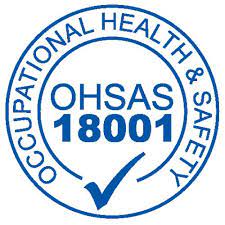Keeping Railroads on Track: The Importance of Railroad Filters
Railroads have long been a crucial mode of transportation, moving people and goods efficiently across vast distances. To ensure the reliability and safety of this mode of transportation, various components and systems need to be maintained, and one of the unsung heroes in this regard is the humble railroad filter. In this blog, we will explore the significance of railroad filters in the smooth functioning of the railway industry.
The Role of Railroad Filters:
Engine Air Filters:
One of the most critical filters in a locomotive is the engine air filter. These filters ensure that the air entering the engine is clean and free of contaminants. Clean air is essential for optimal combustion and engine performance. By trapping dust, debris, and particulate matter, engine air filters help extend the lifespan of the engine and reduce maintenance costs.
Fuel Filters:
Clean fuel is vital for the efficient operation of diesel locomotives. Fuel filters are responsible for removing impurities such as dirt, water, and contaminants from the fuel supply. Keeping the fuel clean ensures that the engine runs smoothly and efficiently, reducing the risk of breakdowns and costly repairs.
Hydraulic Filters:
Railroads rely on hydraulic systems for various functions, from braking to suspension. Hydraulic filters help maintain the purity of the hydraulic fluid by trapping particles and contaminants that can cause wear and tear on critical components. Clean hydraulic fluid ensures the safe and reliable operation of these systems.
Air Conditioning Filters:
Passenger comfort is paramount in modern railroad travel. Air conditioning filters are essential for maintaining clean and healthy air within passenger cabins. They remove allergens, dust, and Odors, providing a pleasant and healthy environment for passengers during their journey.
Cabin Air Filters:
For crew members working in the locomotive, cabin air filters are crucial for providing clean and breathable air. These filters help protect the health and well-being of the crew by preventing the entry of pollutants and contaminants into the cabin
Pollution and Allergen Filtration: Trains often travel through diverse environments, from bustling cities to remote rural areas. Cabin air filters are essential in removing particulate matter, allergens, and pollutants from the outside air, ensuring passengers breathe clean and healthy air throughout their journey.
Passenger Comfort:
A comfortable journey is essential for passenger satisfaction. Cabin air filters help maintain a comfortable temperature and humidity level within the cabin, providing a pleasant environment for travelers. They also reduce the intrusion of dust and odors from the external surroundings.
Health and Well-being:
Clean air is vital for the health and well-being of passengers and crew members. Effective cabin air filtration can help prevent the spread of airborne illnesses and ensure a safer environment, especially during flu seasons or health crises.
Maintaining Equipment:
Cabin air filters not only benefit passengers but also play a role in maintaining the train’s internal equipment. They help prevent the accumulation of dust and debris in sensitive components, reducing the risk of equipment failure and minimizing maintenance costs.









